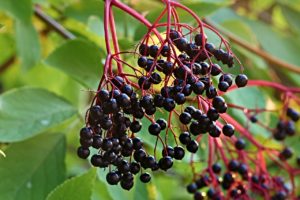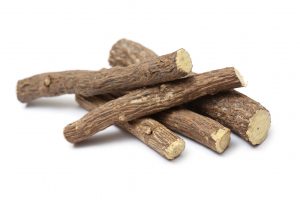The intricate relationship between gut health and the immune system is increasingly being seen as a key factor in protecting us from viral infections.
As winter approaches, so does the season of sniffles and sneezes. And this is when we take immune supporting supplements to protect us against colds and flu.
But did you know that your gut health might hold the key to staying healthy during these chilly months?
The connection between gut health and immunity is increasingly recognised as vital for defending against viral infections.
In this blog post, we’ll look into the fascinating world of gut microbiota and how nurturing your gut can support your immune system, playing a crucial role in shielding you from winter viruses
Understanding Gut Microbiota:

At the core of the gut-immunity connection lies the diverse community of microorganisms that live in our digestive system – your gut microbiota.
These tiny inhabitants, including bacteria, fungi, and viruses, contribute significantly to your overall well-being. They aid in digestion, produce essental vitamins and also interact closely with your immune system to maintain a delicate balance of health.
The Gut-Immune Axis:
Imagine your gut as a bustling city, with immune cells stationed at every corner, ready to protect against invaders. This dynamic interplay between immune cells and gut microbes forms the gut-immune axis, essential for optimal immune function.
How Gut Health Influences Immunity:
So, just how exactly does gut health influence immunity?
It boils down to the diversity and composition of your gut microbiota. A rich and varied microbial community promotes a robust immune response, while disturbances in this balance can weaken immunity. Here’s how it works:
- Regulating Inflammation: The gut microbiota helps keep inflammation in check, preventing it from getting out of control and causing harm to the body.
- Training Immune Cells: Certain gut microbes educate immune cells, enabling them to distinguish between harmful and harmless substances.
This process, known as immune education, is important for developing a good immune response to pathogens. - Producing Antimicrobial Substances: Some gut microbes even produce antimicrobial substances that can directly target and eliminate harmful pathogens, including viruses.
By improving the population of these beneficial microbes, we help our body’s natural defence mechanisms. - Supporting Barrier Function: The gut lining serves as a barrier, preventing harmful substances, including viruses, from entering the bloodstream. A healthy gut microbiota helps maintain the effectiveness of this barrier, reducing the risk of viral infections.
The Role of Diet and Lifestyle:
Maintaining a healthy gut microbiota requires conscious effort and attention to lifestyle factors, especially diet.
A diet rich in fiber, fruits, vegetables, and fermented foods nourishes beneficial gut microbes, promoting diversity and resilience.
On the other hand, diets high in processed foods, sugar, and unhealthy fats can disrupt the gut microbiota, compromising immune function.
In addition to diet, other lifestyle factors, such as stress, sleep, and exercise, also influence gut health and immunity.
Chronic stress, poor sleep quality, and sedentary behaviour have been linked to dysbiosis (imbalance in gut microbiota) and impaired immune function.
This means that paying attention to stress management, adequate sleep, and regular physical activity can contribute to a healthier gut and a stronger immune system.
Practical Tips for Supporting Gut Health:
Now that we understand the importance of gut health in bolstering immunity, we’ll explore some practical tips for nurturing our gut microbiota and magnifying our defences against winter viruses:
- Eat a diverse range of foods: Incorporate a variety of plant-based foods into your diet to feed different types of gut microbes.
- Include fermented foods: Yogurt, kefir, sauerkraut, kimchi, and kombucha are excellent sources of probiotics, the beneficial bacteria that support gut health.
- Include fibre: Aim to consume plenty of fibre-rich foods like whole grains, legumes, fruits, and vegetables, which serve as fuel for beneficial gut bacteria.
- Stay hydrated: Adequate hydration is essential for maintaining optimal digestive function and supporting the growth of beneficial gut microbes.
- Manage stress: Adopt stress-reduction techniques such as meditation, yoga, deep breathing exercises, or spending time in nature to support a healthy gut-brain connection.
- Get quality sleep: Aim for 7-9 hours of quality sleep each night to support immune function and gut health.
Conclusion:
As winter approaches and viruses lurk around every corner, remember that a healthy gut is an important defence against seasonal illnesses.
By nurturing your gut microbiota through a balanced diet, lifestyle modifications, and targeted supplementation if necessary, you can bolster your immune system and arm yourself against winter viruses.
So, embrace the gut-immunity connection and let your gut be your guide to a healthier, more resilient you.
Stay well
You can book your appointment today simply by clicking here.
Alternatively, ring us at 03 9879 9596 or send us an email at health@yourwellnesscentre.com.au.

If you are unable to make the journey, simply book for a Telehealth appointment, where we can have either a phone or video consult, depending on your preferences.
To read more about how healthy habits help the immune system, click here

 Current reports state that one of the strains in the flu vaccine used this year has mutated.
Current reports state that one of the strains in the flu vaccine used this year has mutated. 

 Aim for at least two serves of fruit and three cups of vegetables daily.
Aim for at least two serves of fruit and three cups of vegetables daily. The lifestyle prescription when you are unwell is to get lots and lots of sleep!
The lifestyle prescription when you are unwell is to get lots and lots of sleep!